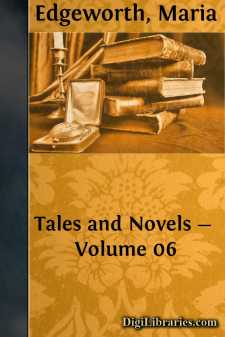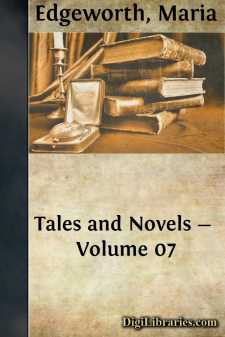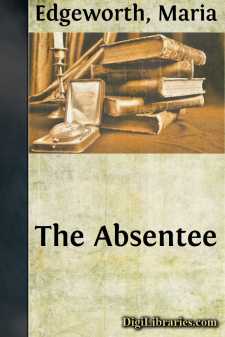Categories
- Antiques & Collectibles 13
- Architecture 36
- Art 48
- Bibles 22
- Biography & Autobiography 813
- Body, Mind & Spirit 142
- Business & Economics 28
- Children's Books 16
- Children's Fiction 13
- Computers 4
- Cooking 94
- Crafts & Hobbies 4
- Drama 346
- Education 46
- Family & Relationships 57
- Fiction 11829
- Games 19
- Gardening 17
- Health & Fitness 34
- History 1377
- House & Home 1
- Humor 147
- Juvenile Fiction 1873
- Juvenile Nonfiction 202
- Language Arts & Disciplines 88
- Law 16
- Literary Collections 686
- Literary Criticism 179
- Mathematics 13
- Medical 41
- Music 40
- Nature 179
- Non-Classifiable 1768
- Performing Arts 7
- Periodicals 1453
- Philosophy 64
- Photography 2
- Poetry 896
- Political Science 203
- Psychology 42
- Reference 154
- Religion 513
- Science 126
- Self-Help 84
- Social Science 81
- Sports & Recreation 34
- Study Aids 3
- Technology & Engineering 59
- Transportation 23
- Travel 463
- True Crime 29
Tales and Novels - Volume 10
by: Maria Edgeworth
Description:
Excerpt
CHAPTER I.
"There is Helen in the lime-walk," said Mrs. Collingwood to her husband, as she looked out of the window. The slight figure of a young person in deep mourning appeared between the trees,—"How slowly she walks! She looks very unhappy!"
"Yes," said Mr. Collingwood, with a sigh, "she is young to know sorrow, and to struggle with difficulties to which she is quite unsuited both by nature and by education, difficulties which no one could ever have foreseen. How changed are all her prospects!"
"Changed indeed!" said Mrs. Collingwood, "pretty young creature!—Do you recollect how gay she was when first we came to Cecilhurst? and even last year, when she had hopes of her uncle's recovery, and when he talked of taking her to London, how she enjoyed the thoughts of going there! The world was bright before her then. How cruel of that uncle, with all his fondness for her, never to think what was to become of her the moment he was dead: to breed her up as an heiress, and leave her a beggar!"
"But what is to be done, my dear?" said her husband.
"I am sure I do not know; I can only feel for her, you must think for her."
"Then I think I must tell her directly of the state in which her uncle's affairs are left, and that there is no provision for her."
"Not yet, my dear," said Mrs, Collingwood: "I don't mean about there being no provision for herself, that would not strike her, but her uncle's debts,—there is the point: she would feel dreadfully the disgrace to his memory—she loved him so tenderly!"
"Yet it must be told," said Mr. Collingwood, resolutely "and perhaps it will be better now; she will feel it less, while her mind is absorbed by grief for him."
Helen was the only daughter of colonel and Lady Anne Stanley; her parents had both died when she was too young to know her loss, nor had she ever felt till now that she was an orphan, for she had been adopted and brought up with the greatest tenderness by her uncle, Dean Stanley, a man of genius, learning, and sincere piety, with the most affectionate heart, and a highly cultivated understanding. But on one subject he really had not common sense; in money matters he was inconceivably imprudent and extravagant; extravagant from charity, from taste, from habit. He possessed rich benefices in the church, and an ample private fortune, and it was expected that his niece would be a great heiress—he had often said so himself, and his fondness for her confirmed every one in this belief. But the dean's taste warred against his affection: his too hospitable, magnificent establishment had exceeded his income; he had too much indulged his passion for all the fine arts, of which he was a liberal patron: he had collected a magnificent library, and had lavished immense sums of money on architectural embellishments. Cursed with too fine a taste, and with too soft a heart—a heart too well knowing how to yield, never could he deny himself, much less any other human being, any gratification which money could command; and soon the necessary consequence was, that he had no money to command, his affairs fell into embarrassment—his estate was sold; but, as he continued to live with his accustomed hospitality and splendour, the world believed him to be as rich as ever....












